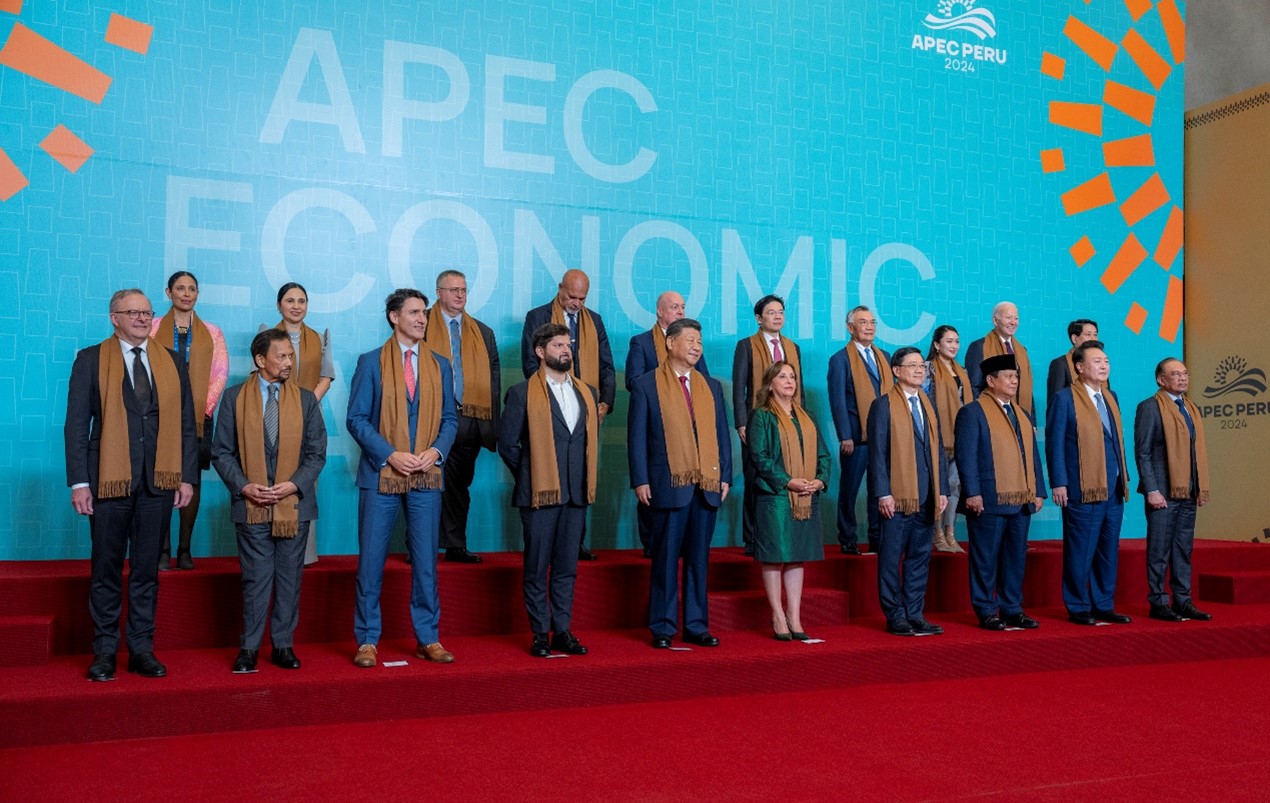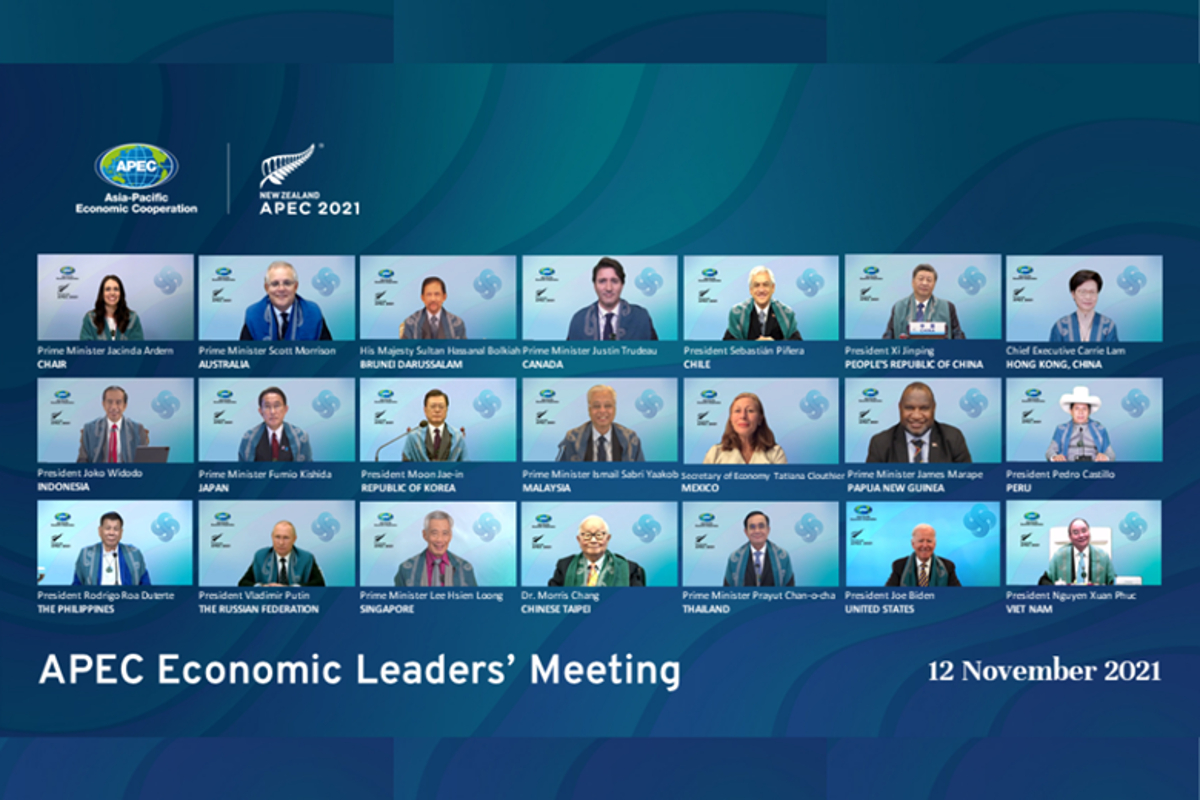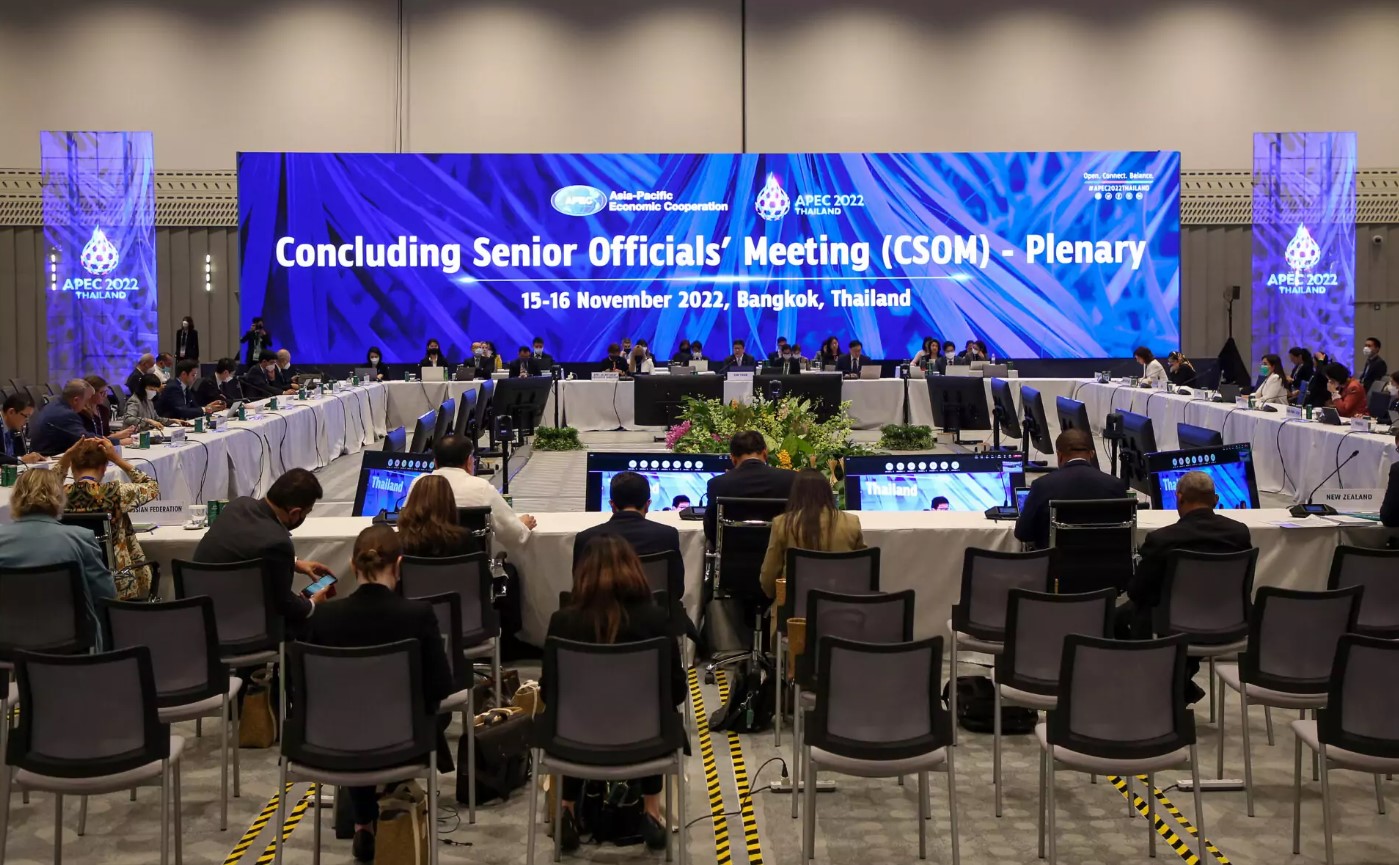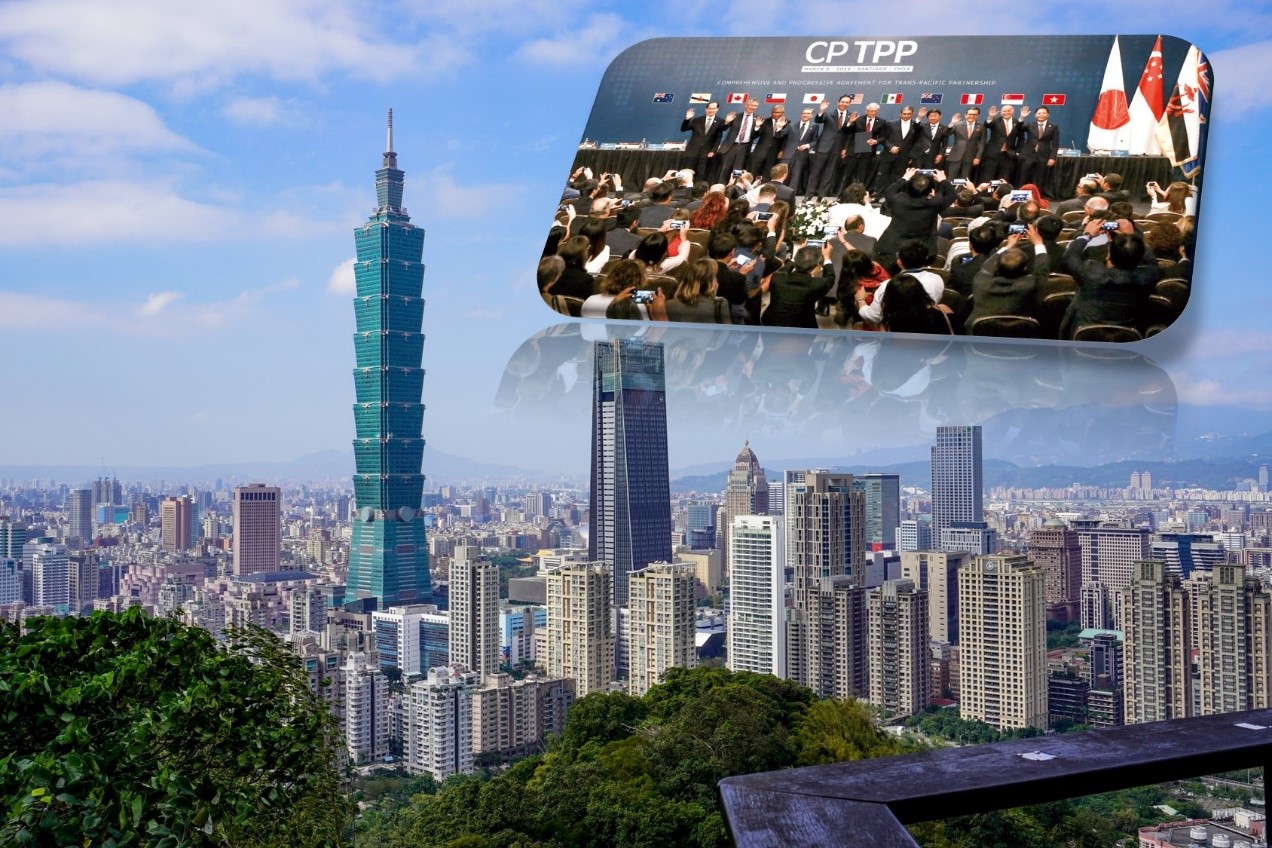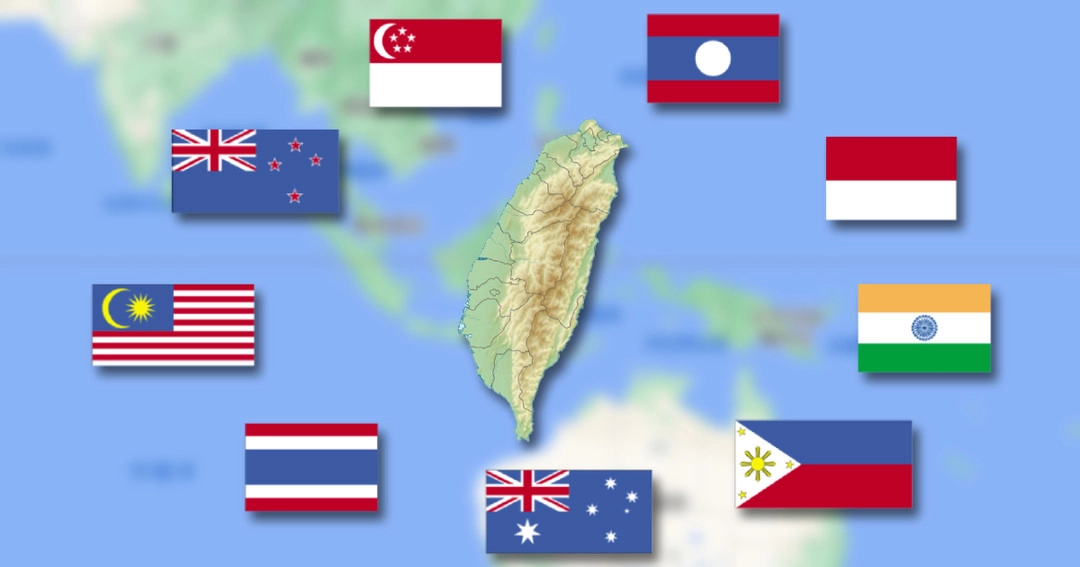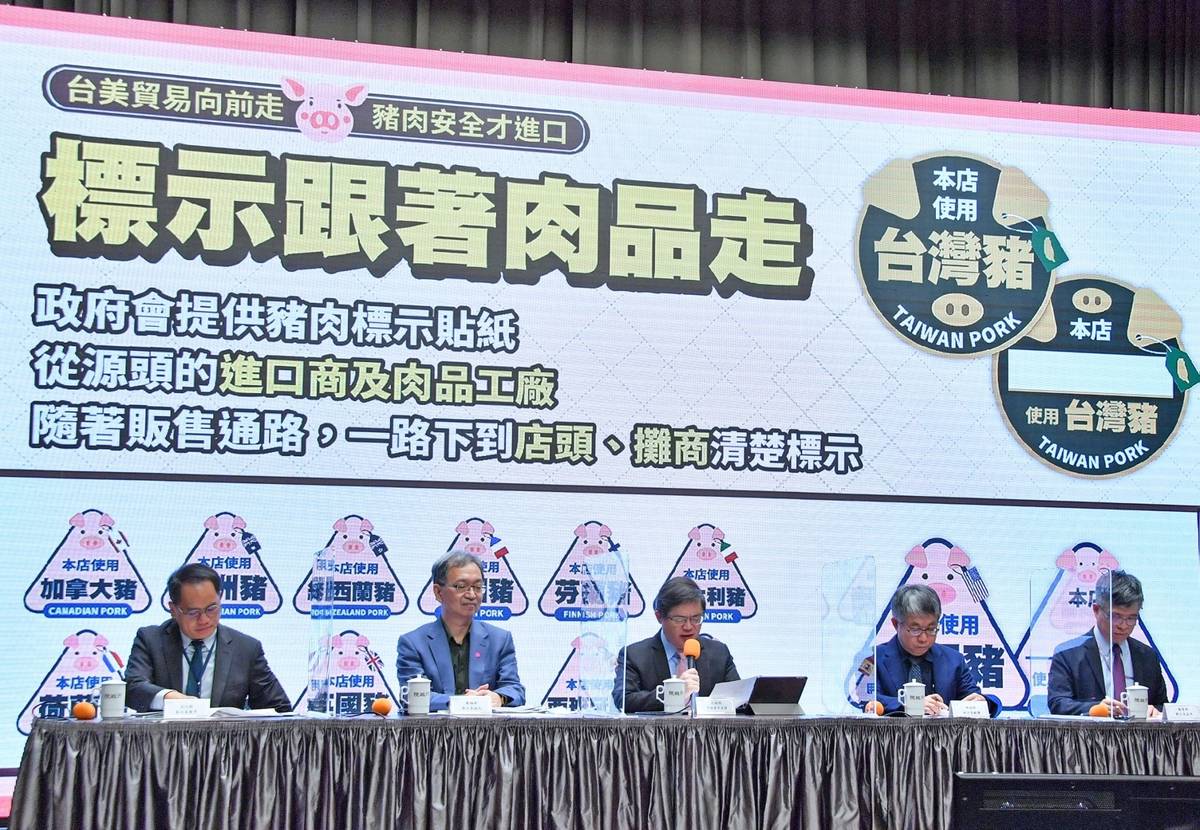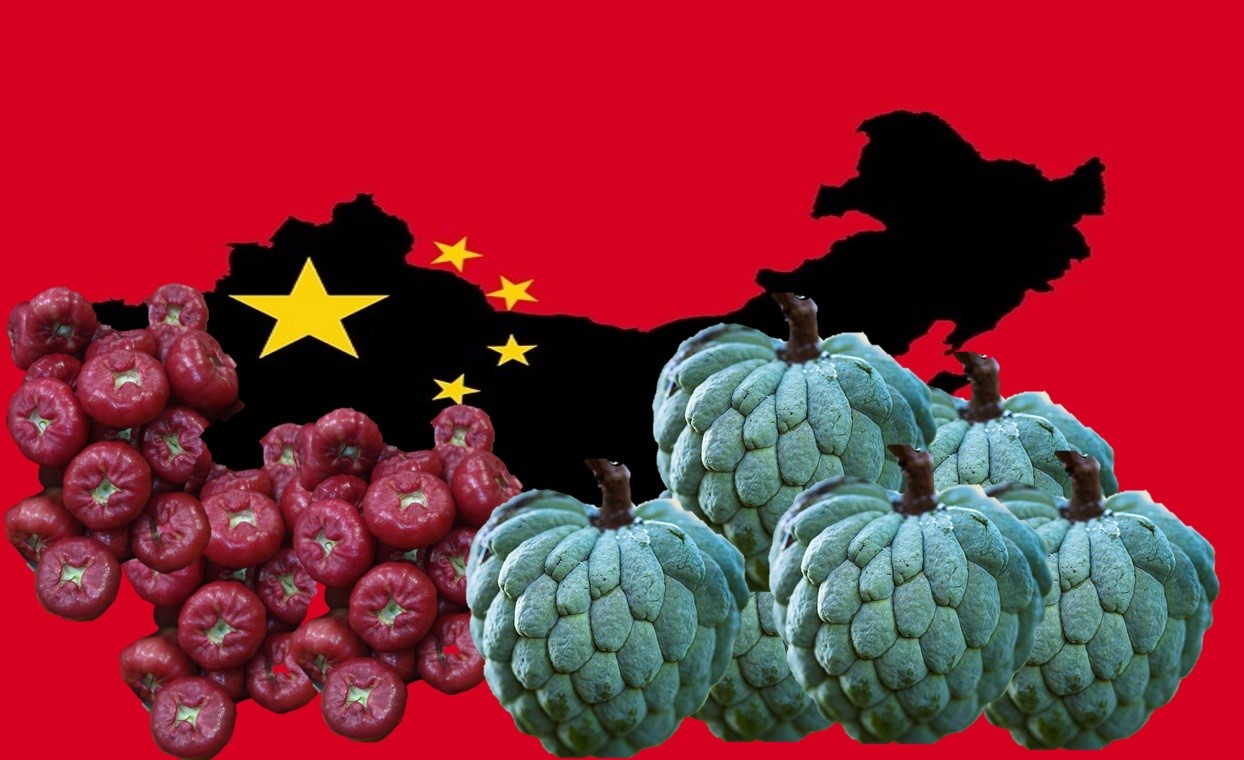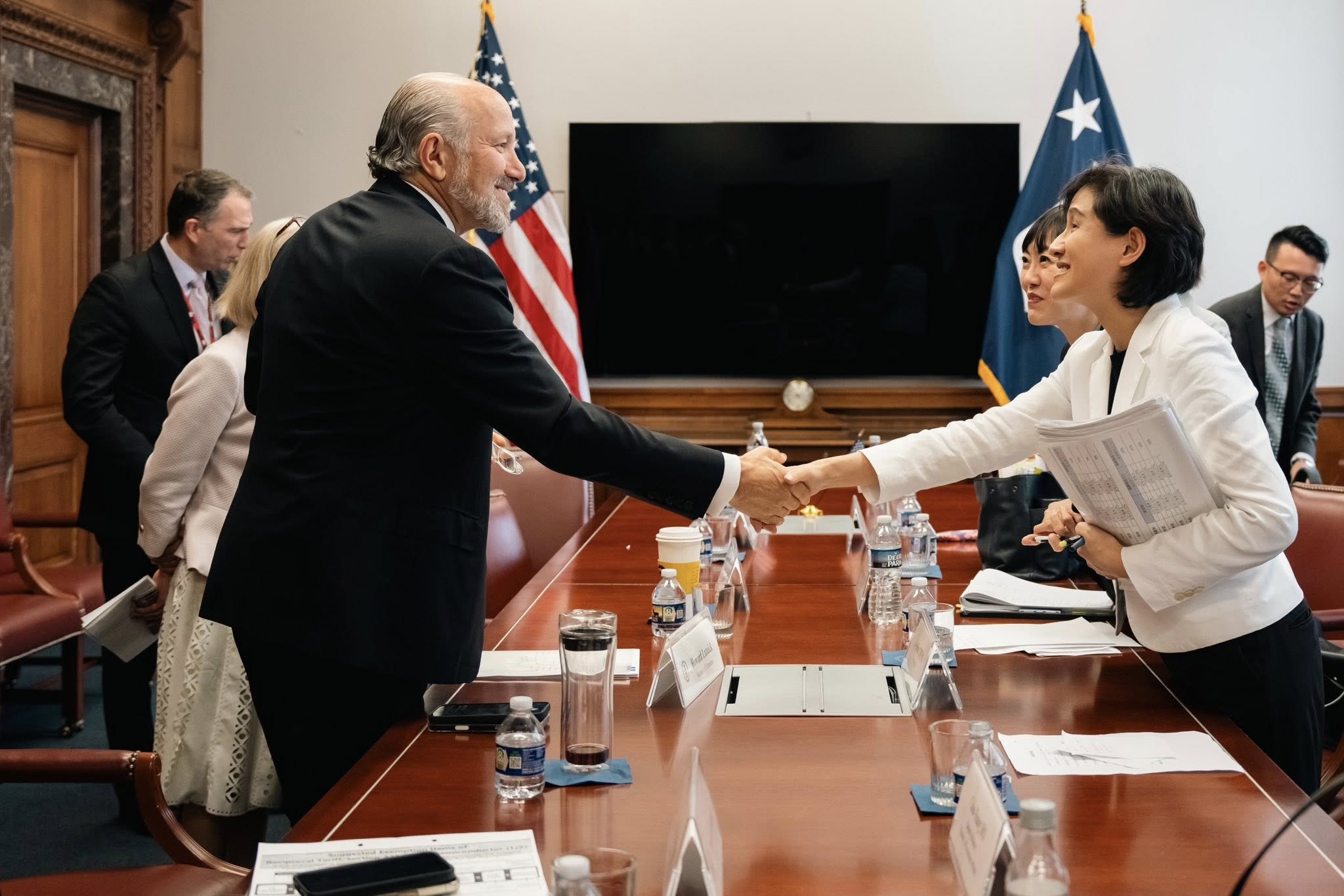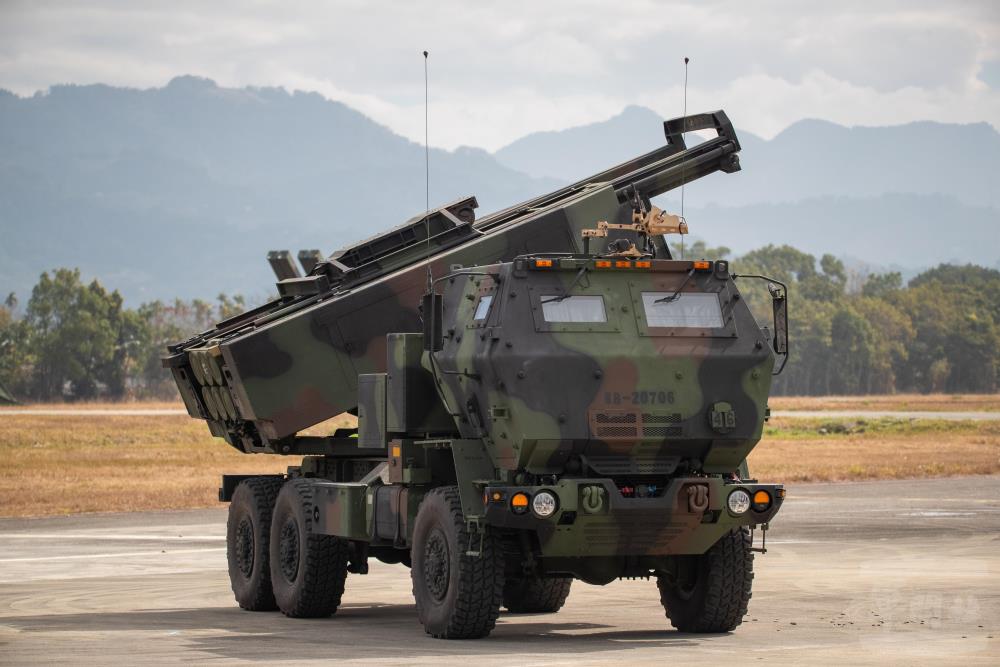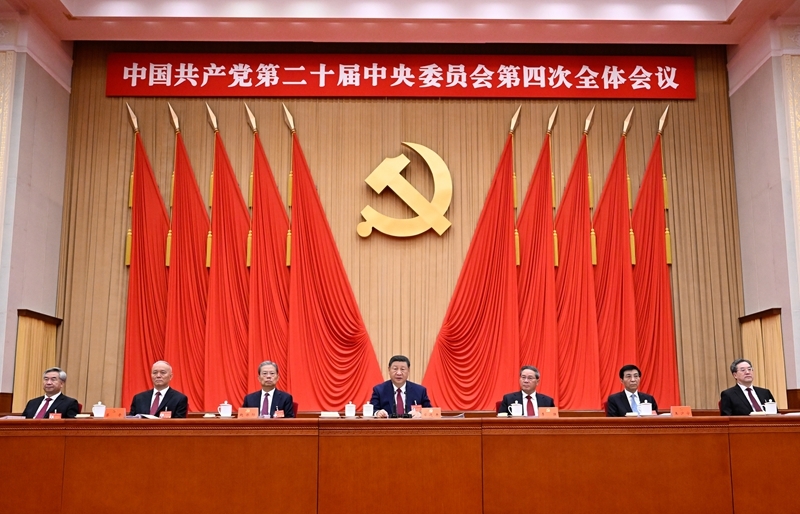Since Taiwan joined APEC in 1991, China’s representatives have gradually adapted to Taiwan’s right to engage in APEC discussions for “grassroots economic and trade” exchanges. If APEC serves as a positive precedent, Taiwan’s accession to the CPTPP should also be acceptable. Picture source: APEC, November 17, 2024, Facebook, https://www.facebook.com/photo.php?fbid=979644314193841&set=pb.100064448449458.-2207520000&type=3.
Prospects & Perspectives No. 72
Explained: Taiwan’s Position at the 2024 APEC Summit
By Albert Shihyi Chiu
The Asia-Pacific Economic Cooperation (APEC) was established in 1989 as an intergovernmental organization where members join as “economies.” Taiwan joined APEC in 1991 under the name “Chinese Taipei” and is one of its 21 member economies. Unlike most member economies represented by their national leaders, Taiwan’s participation in APEC meetings, due to factors related to China, has historically been limited to high-ranking officials or prominent civilian representatives. In 2024, President Lai Ching-te appointed Lin Hsin-i, a former minister of economic affairs (2000–2002), vice premier (2002–2004), and current Presidential Adviser, to represent Taiwan at the Lima Summit in Lima, Peru. Lin had previously represented the Republic of China at the 2005 APEC meeting in Busan, South Korea, during the Chen Shui-bian presidency.
Participation as equals
Although APEC is a non-political organization, it provides opportunities for representatives from China and Taiwan to interact with equality and dignity. For example, at the 2005 APEC meeting in Busan, Lin publicly shook hands with Hu Jintao, then General Secretary of the Chinese Communist Party (CCP). However, current Chinese leader Xi Jinping, who has sought to further restrict Taiwan’s international participation, has aimed to avoid such equal interactions with Taiwan’s representatives. Indeed, during a closed-door roundtable meeting at this summit, although Lin and Xi sat directly across from each other, there was no interaction.
Before the summit, President Lai entrusted Lin with three key tasks. First, Taiwan must actively contribute to the international community. Member economies have shown significant interest in Taiwan’s achievements in artificial intelligence, digital healthcare, semiconductors, energy transition, and the resilience of small and medium-sized enterprises. Second, Taiwan supports a fairer and more inclusive international trade order under the World Trade Organization (WTO). Third, Taiwan seeks to promote digital trade development with other economies, confident that its digital capabilities will continue to contribute to global economic growth and prosperity.
The summit concluded on November 16, during which Lin held meetings with Japanese Prime Minister Ishiba Shigeru and U.S. President Joe Biden, marking a significant effort to bolster Taiwan’s presence on the international economic stage. Lin also invited Biden to visit Taiwan, to which Biden warmly replied, "I will." Lin exchanged greetings in Japanese with Ishiba, and their staff arranged a formal bilateral meeting to deepen Taiwan-Japan cooperation in semiconductors and AI.
Chance for a ‘win-win’ outcome
The Chinese government need not continue suppressing Taiwan’s international participation. Allowing the Republic of China to join non-political international organizations under the name “Chinese Taipei” or even “Taiwan” is unrelated to “Taiwan independence.” Instead, it concerns the rights, daily needs, and public health of the people in Taiwan. For example, joining the World Health Assembly (WHA) has long been a goal for Taiwan, as it pertains to basic human rights rather than independence. Similarly, Taiwan’s application to join the CPTPP is unrelated to independence but concerns trade exchanges with CPTPP member states, including China in future. Taiwan also seeks membership in the International Civil Aviation Organization (ICAO) due to its importance to global aviation safety. Taiwan’s participation in these organizations would benefit global travelers and contribute to economic and health-related developments. Allowing Taiwan to engage in trade, health, and aviation organizations would result in mutual benefits for Taiwan and China, creating a win-win outcome.
From the perspective of international law, Washington’s longstanding “One China” policy merely acknowledges Beijing’s claims of sovereignty over Taiwan. This policy is rooted in the Three Communiqués and the Taiwan Relations Act, maintaining strategic ambiguity. In contrast, Beijing’s “One China” principle asserts that there is only one China — the People’s Republic of China — that the PRC is the sole legitimate government, and that Taiwan is part of China. However, this “principle” has not been accepted by major Western powers, particularly the U.S. While the West does not support Taiwan independence for geopolitical stability, it also does not endorse Beijing’s “One China” principle. Between these two extremes lie “middle-ground options” acceptable to many Western countries, which involve recognizing Taiwan under names like "Chinese Taipei” or “Taiwan” in international organizations. Notably, UN Resolution 2758 only addressed restoring the PRC’s legitimate rights in the United Nations, replacing the Republic of China’s representation of China. It did not mention Taiwan. Thus, under the current status quo of not advocating for Taiwan independence, there is no reason to oppose Taiwan’s participation in non-political organizations under “Chinese Taipei” or “Taiwan."
Since Taiwan joined APEC in 1991, China’s representatives have gradually adapted to Taiwan’s right to engage in APEC discussions for “grassroots economic and trade” exchanges. Another good example is the WTO. Taiwan joined the WTO in January 2002 as a “Separate Customs Territory of Taiwan, Penghu, Kinmen, and Matsu.” Taiwan’s permanent mission in Geneva actively participates in negotiations on topics such as fisheries subsidies, e-commerce, agriculture, development, dispute settlement, the environment, intellectual property rights, market access, rules, services, and trade facilitation, utilizing WTO mechanisms to safeguard Taiwan’s industrial interests. If APEC serves as a positive precedent, Taiwan’s accession to the CPTPP should also be acceptable. Furthermore, Taiwan’s potential membership in the China-led Regional Comprehensive Economic Partnership (RCEP) could even benefit China’s struggling economy in future.
The Trump factor
The global situation is changing rapidly. After the inauguration of the new U.S. president on January 20 next year, Donald Trump’s focus on trade deficits will likely lead to intensified trade sanctions against China. In fact, Trump has already decided to increase tariffs on China by 10%, bringing the total to 60%. While President Trump may not directly express concern over Taiwan joining various non-political international organizations, it is difficult to rule out the possibility that he might, when necessary, ramp up pressure on the members of these international organizations to support Taiwan’s inclusion, using it as leverage in trade negotiations with China.
Rather than facing the embarrassment of such a scenario, the CCP could perhaps take a proactive approach by accepting and adapting to Taiwan’s gradual participation in international affairs. This participation would not undermine China’s adherence to its “One China” principle. Even taking a step back, if Trump does not use support for Taiwan’s international participation as a bargaining chip in negotiations with China, Taiwan’s current reality is that international organization members frequently call for Taiwan’s inclusion. Does this not also create a headache for Beijing?
Beijing should be encouraged to carefully consider the possibility of separating Taiwan’s international status from the wellbeing of its people. The more Beijing can do so, the more likely it is to improve Taiwanese people’s perception of China.
(Albert Shihyi Chiu is Professor, Department of Political Science, Tunghai University, Taiwan.)


